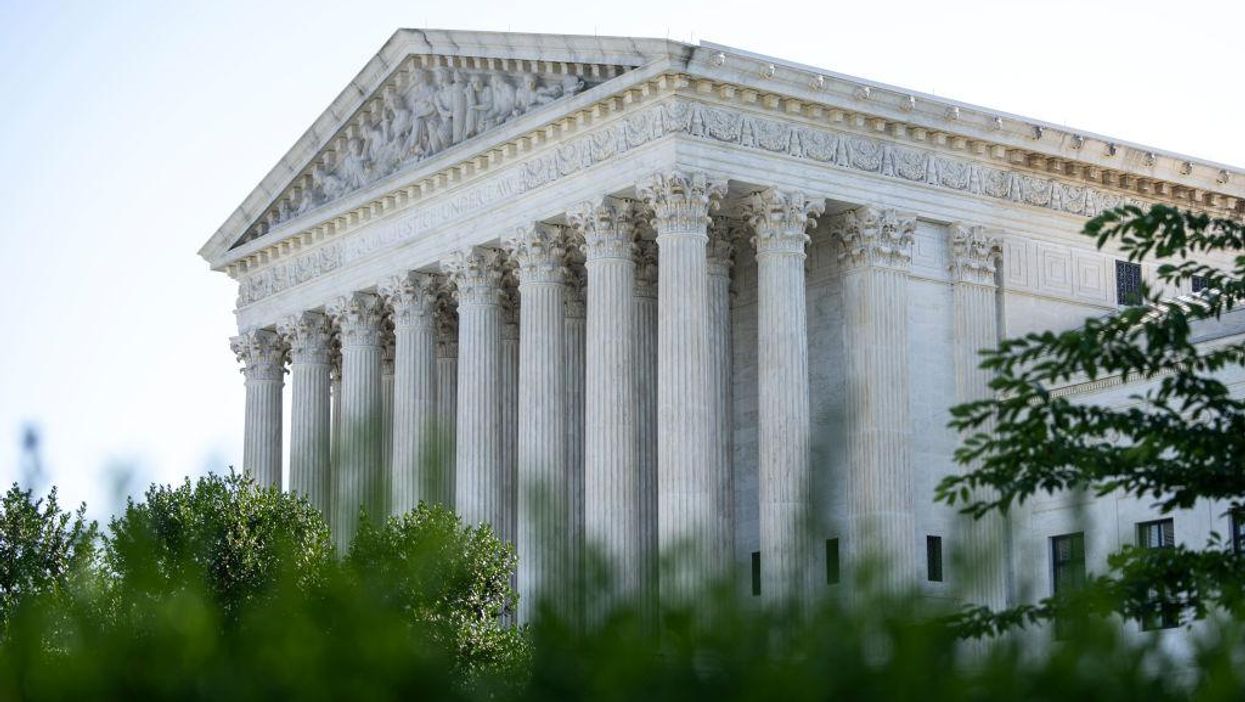
Photo by Drew Angerer/Getty Images

The Supreme Court in a 6-3 ruling issued Tuesday said that previously deported illegal immigrants who are detained after re-entering the United States and claim asylum must remain in federal custody while their cases are processed.
The court majority, in an opinion written by Justice Samuel Alito, said that certain migrants are not entitled to a bond hearing about whether they should be released from detention while the government processes their asylum claims. Democrat-appointed Justices Sonia Sotomayor, Stephen Breyer, and Elena Kagan dissented.
The case, Johnson v. Guzman Chavez, related to foreigners who had been previously deported and, when detained after re-entering the United States illegally, tried to halt their deportation proceedings by claiming asylum.
When a migrant claims asylum in the U.S., federal law provides that immigration officers must determine whether the alien has a "reasonable fear" for their safety if he is deported to his home country. If that noncitizen alien is detained by the federal government, under normal circumstances he is entitled to a bond hearing where he can seek release. If an immigration judge determines a detained migrant meets certain criteria, he can be released while his asylum claims are processed.
However, this case involved asylum claims made by a group of individuals who were previously deported and were detained after re-entering the country illegally. The question before the court was whether the federal government could continue to detain these illegal immigrants after they made asylum claims or whether they were entitled to a bond hearing as normal migrants are.
The Wall Street Journal explained:
As in many immigration cases, the court had to make sense of complicated provisions that point in different directions. When previously deported noncitizens return unlawfully to the U.S., their previous removal orders automatically are reinstated and cannot be challenged.
The Supreme Court found this effectively makes their cases "administratively final," triggering another section that makes detention mandatory until the noncitizens are again deported, which is supposed to occur within 90 days.
Elsewhere, federal law authorizes noncitizens to ask immigration judges to freeze their deportation orders to specific countries where they are likely to be persecuted or tortured, known technically as "withholding of removal."
Justice Alito wrote that even if an immigration judge were to freeze a deportation order, as a legal matter the noncitizen still has been ordered to leave the U.S. and therefore the mandatory detention rule remains in effect. Freezing deportation doesn't grant a right to remain in the U.S., but rather prohibits removal to a specific country, he observed, and the government "retains the authority to remove the alien to any other country authorized by the statute" where conditions may be safer.
The dissenting justices contended that the previous deportation orders were not administratively final as the majority interpreted the law to mean, which would permit the aliens in question to seek bond hearings.
"I can find no good reason why Congress would have wanted categorically to deny bond hearings to those who, like respondents, seek to have removal withheld or deferred due to a reasonable fear of persecution or torture," Justice Breyer wrote in his dissent. "And I do not agree with the majority's reading of the statute's language as denying them that opportunity."